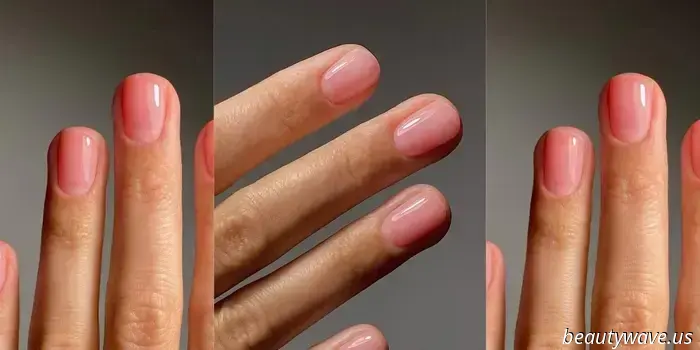
I've gone through more than 100 self-help books—here are the most valuable lessons I've gained.
I recall my first self-help book much like many remember their first kiss. While perusing the shelves of my middle school library, I discovered The 7 Habits of Highly Effective Teens by Sean Covey. This encounter ignited a thrill within me. For the first time, I had access to tools for personal development right at my fingertips. Self-help books soon became essential in guiding my journey towards becoming my best self.
Fast forward through over a hundred personal development books, I now view myself as a self-help book aficionado. I have experimented with various life hacks aimed at boosting self-esteem, manifesting my dreams, enhancing my wellness, and elevating my overall quality of life. While not every tip I encountered over the years resonated deeply or became a lasting habit, several have stood the test of time and are vital to my well-being. Here are the self-help practices I’ve embraced—from manifestation methods to self-love techniques—that not only prove effective but have been my go-to strategies for years.
Pursue interests from a place of curiosity
In a time where every passion seems tied to the pressure to monetize, Elizabeth Gilbert's insights in Big Magic: Creative Living Beyond Fear came as a refreshing change. In her twenties, Gilbert committed to writing not out of a desire for financial gain (though that would be a bonus) but from pure curiosity and love for the craft. “I held on to my day jobs for so long because I wanted to keep my creativity free and safe,” she wrote. “I maintained alternative sources of income so that when my inspiration wasn’t flowing, I could assure it, ‘No worries, mate. Just take your time.’”
After reading this invaluable advice, I resolved to do likewise: pursue my interests for the joy they bring, rather than for potential financial gain. While it would be wonderful to earn a full-time living from my hobbies, that's not my primary goal. My main focus is to follow my curiosities because they keep me eager to embrace everything life presents. Therefore, whenever I wish to explore a hobby or delve into an interest, I do so without the pressure of having to excel or become an expert.
Make alone time productive
At first glance, one might think that Jay Shetty's 8 Rules of Love is solely about strategies for finding lasting love. However, the first chapter is dedicated to self-love. Divided into five ashrams inspired by ancient Vedic teachings, Shetty describes the various stages we should aim to master before progressing to the next. These stages include preparing for love (Brahmacharya ashram), practicing love (Grhastha ashram), protecting love (Vanaprastha ashram), and perfecting love (Sannyasa ashram). The school of Brahmacharya focuses on learning and understanding oneself as deeply as one would know another.
My singlehood improved significantly when I discovered the distinction between loneliness and productive solitude. As Shetty explains, “In solitude, we practice giving ourselves what we need before expecting it from someone else. Are you kind to yourself? Are you honest with yourself? Are you emotionally available to yourself? Are you supportive of your own efforts?” Before understanding the value of productive solitude, my time was consumed with dating and the search for “The One” (meaning any alone time was spent swiping on apps or going out on dates). Now, I prioritize carving out time alone, using it intentionally to explore my interests, embark on side adventures, and cultivate qualities that I take pride in.
Live as your best self now
Like many, I used to believe that becoming my best self was a pursuit I had to chase, assuming I would magically morph into that person. I was unaware that this mindset stemmed from the “waiting to start living syndrome.” Eckhart Tolle, renowned for his book The Power of Now, describes this syndrome in A New Earth: Awakening to Your Life’s Purpose as “the most common delusions of the unconscious state.” It’s the belief that a perfect future moment exists where we will be able to do all that we have ever wanted. However, “that tomorrow will never arrive unless you start enjoying what you are doing now.”
Instead of allowing this impostor syndrome to dictate my life, I adopted practices that hold me accountable for taking daily steps to embody my best self now. For instance, I create a quarterly list of intentions and goals. Each quarter, I review my vision board, jot down my achievements for that period, and reflect on the steps I'm taking in alignment with my best self. This approach keeps me from waiting for my life to unfold because it’s already happening now.
Focus more on how your life feels
As a digital native, much of my youth revolved around the urge to curate, perform, and share on social media. Initially, social media was a source of pure fun and entertainment (remember when it was acceptable to regularly post pictures of your avocado toast or


Other articles
 It's Written in the Stars: Your Unique Summer Fragrance, According to Your Zodiac Sign
it's written in the stars ⭐
It's Written in the Stars: Your Unique Summer Fragrance, According to Your Zodiac Sign
it's written in the stars ⭐
 The 2025 Swim Report—All the Key Trends You Should Be Aware Of
Here are the key swim trends dominating the summer of 2025. Check out the selection here.
The 2025 Swim Report—All the Key Trends You Should Be Aware Of
Here are the key swim trends dominating the summer of 2025. Check out the selection here.
 Jelly Nails Are the Ideal Complement to My Effortless Summer Beauty Routine.
Continue reading for all the information you need about jelly nails, the newest food-inspired nail trend that is dominating your social media platforms.
Jelly Nails Are the Ideal Complement to My Effortless Summer Beauty Routine.
Continue reading for all the information you need about jelly nails, the newest food-inspired nail trend that is dominating your social media platforms.
 Before investing in mesh flats, take a look at the newer style I've been noticing fashion enthusiasts in Lisbon and Miami sporting.
Copenhagen, New York, and Barcelona as well.
Before investing in mesh flats, take a look at the newer style I've been noticing fashion enthusiasts in Lisbon and Miami sporting.
Copenhagen, New York, and Barcelona as well.
 Hold off on purchasing new Sambas until you check out these stylish sneakers that have just been released.
They may or may not also be from Adidas.
Hold off on purchasing new Sambas until you check out these stylish sneakers that have just been released.
They may or may not also be from Adidas.
 I Just Cleared My Sister's Zara Cart—Here's What I Put in Its Place
From airy white dresses to stylish sandals, here’s our complete list of recommendations for what to purchase from Zara this summer.
I Just Cleared My Sister's Zara Cart—Here's What I Put in Its Place
From airy white dresses to stylish sandals, here’s our complete list of recommendations for what to purchase from Zara this summer.
I've gone through more than 100 self-help books—here are the most valuable lessons I've gained.
These have been crucial for my well-being.
